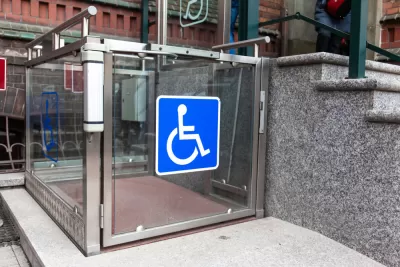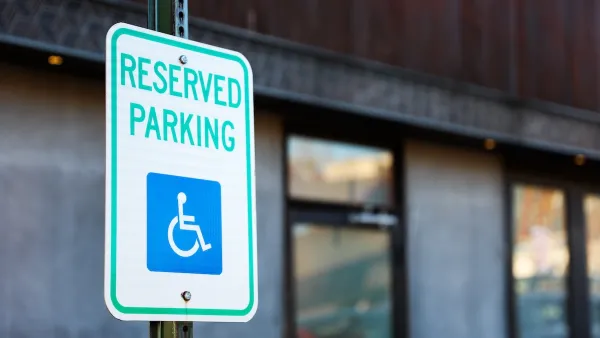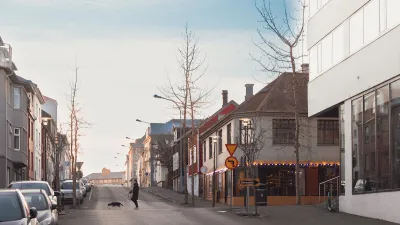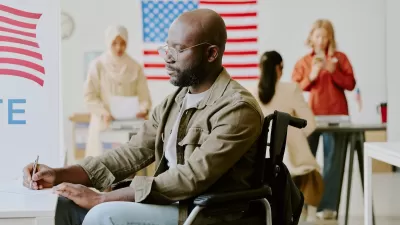People with disabilities often die at higher rates during natural disasters or other emergencies. One Oregon advocacy group wants to change that.

A new advocacy group in Oregon’s Marion County wants to promote more inclusive emergency management that takes into account the needs of people with disabilities. The group, led by 17-year-old Riley Hurt, “will connect the local disability community with emergency management professionals to improve outcomes for disabled folks affected by disasters,” according to an article by Marianne Dhenin in Next City.
“Disabled people are two to four times more likely to die or sustain critical injuries during a disaster than non-disabled people. A combination of factors leads to this condemnable statistic, including poor planning and barriers to accessing emergency information or services.” As Dhenin points out, “Ultimately, the systems meant to serve people during emergencies are not designed with disabled people in mind, and disabled people are often excluded from shaping these systems because their expertise is stigmatized or dismissed. The spaces where emergency systems are designed, like elected government and the healthcare, technology, and engineering industries, are also inaccessible.”
Advocacy groups like Hurt’s can help bridge the gap. “Across the country, the need for more inclusive emergency management grows more evident every time a climate catastrophe hits. During the record-breaking heatwave in Portland, Oregon, last June, some of the first Portlanders to die from hyperthermia were disabled adults living in low-income neighborhoods. When Hurricane Ida made landfall in Louisiana last August, disabled residents struggled to access support for evacuation.”
Hurt hopes the Marion County group will grow and serve as a model for bridging disaster management and disability advocacy.
FULL STORY: In One Oregon City, the Disability Community Is Ensuring They Aren’t Left Out of Disaster Planning

Planetizen Federal Action Tracker
A weekly monitor of how Trump’s orders and actions are impacting planners and planning in America.

Maui's Vacation Rental Debate Turns Ugly
Verbal attacks, misinformation campaigns and fistfights plague a high-stakes debate to convert thousands of vacation rentals into long-term housing.

Restaurant Patios Were a Pandemic Win — Why Were They so Hard to Keep?
Social distancing requirements and changes in travel patterns prompted cities to pilot new uses for street and sidewalk space. Then it got complicated.

In California Battle of Housing vs. Environment, Housing Just Won
A new state law significantly limits the power of CEQA, an environmental review law that served as a powerful tool for blocking new development.

Boulder Eliminates Parking Minimums Citywide
Officials estimate the cost of building a single underground parking space at up to $100,000.

Orange County, Florida Adopts Largest US “Sprawl Repair” Code
The ‘Orange Code’ seeks to rectify decades of sprawl-inducing, car-oriented development.
Urban Design for Planners 1: Software Tools
This six-course series explores essential urban design concepts using open source software and equips planners with the tools they need to participate fully in the urban design process.
Planning for Universal Design
Learn the tools for implementing Universal Design in planning regulations.
Heyer Gruel & Associates PA
JM Goldson LLC
Custer County Colorado
City of Camden Redevelopment Agency
City of Astoria
Transportation Research & Education Center (TREC) at Portland State University
Jefferson Parish Government
Camden Redevelopment Agency
City of Claremont





























